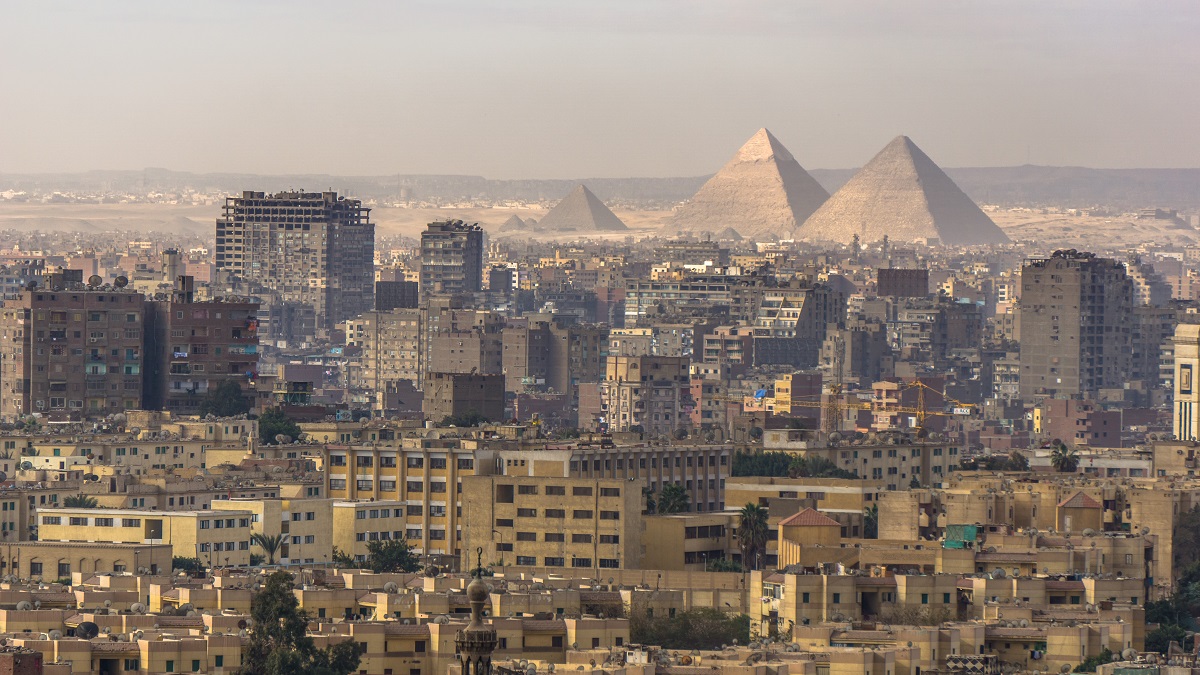The country is striving to unlock more resources for sustainable development by tracking and tackling illicit financial flows.
© Shutterstock/Prin Adulyatham | A view of the Egyptian capital, Cairo.
UNCTAD and the United Nations Office on Drugs and Crime (UNODC) are supporting Egypt to measure illicit financial flows (IFFs) stemming from tax, commercial and illegal market activities.
IFFs refer to financial flows from one country to another that are generated, transferred or used illicitly. They divert resources from essential services and fuel crime and corruption. As a hidden phenomenon, they are not easy to track or measure due to difficulties in obtaining data.
A joint UN project implemented since 2020 has improved measurement of IFFs in Egypt, helping the country mobilize funds to meet the UN Sustainable Development Goals (SDGs), which face huge funding gaps.
Preliminary estimates indicate that Egypt needs to invest 25% of its GDP annually in programmes linked to the SDGs to achieve them by 2030.
“This project is boosting the country’s capacity to produce statistics on IFFs, which provide the evidence needed to formulate policies to curb them and fill SDG financing gaps,” said Nour Barnat, a statistician at UNCTAD.
UNCTAD and UNODC published guidelines on methods to track selected IFFs in June 2021. Egypt was the first country to address IFFs holistically by studying both tax, commercial and crime-related IFFs in parallel to build a complete picture.
Training workshops equip national experts
Egypt’s efforts to measure IFFs are led by its ministry of planning and economic development.
UNCTAD and the ministry have organized training workshops in the country. More than 50 experts participated in a workshop held in March 2022 in Cairo, jointly conducted with UNODC and the United Nations Economic and Social Commission for West Asia (ESCWA).
The participants were drawn from 18 national agencies, including ministries of finance, trade and industry, interior, the country’s central bank and the national statistical office.
They mapped national agencies to measure IFFs in Egypt and crafted a roadmap for a sustained nationally owned process for compiling IFF statistics.
“A multi-stakeholder approach is required to address IFFs,” said Bojan Nastav, a statistician at UNCTAD. “Raising awareness, enhancing statistical capacity and getting support from leaders are necessary to obtain reliable official statistics on IFFs.”
Experts from UNCTAD, UNODC and ESCWA provided tailored comprehensive training on how to measure selected IFFs in Egypt. These included trade misinvoicing and profit shifting by multinational enterprises, smuggling of migrants, drug trafficking and tax-based illicit finance.
“To fully understand IFFs and devise policy actions to tackle them, various government agencies have to pool together the data they have,” said Hisham Taha, an economic advisor at ESCWA.
UNCTAD and UNODC organized another workshop on the statistical measurement of drug-related IFFs in Cairo in June 2022. It focused on streamlining the collection of data on IFFs from drug trafficking activities.
“Analysis of all sources of financing for development is only possible by providing high-quality data, especially those related to IFFs, which threaten the ability of countries to achieve the 2030 Agenda for Sustainable Development,” said Lauraine Habib, a senior economist at the Egyptian ministry of planning and economic development.
More Egyptian experts are expected to benefit from the project, which runs until March 2023.
Towards an integrated financing framework
Meanwhile, a joint UN programme is helping the Egyptian government forge an Integrated National Financing Framework to unlock funds for the SDGs.
Under the programme, ESCWA is piloting an integrated set of dynamic tools that provide detailed cost estimates of national SDG priorities, coupled with public investment efficiency barometers and progress trackers.
These allow policymakers to simulate the outcomes of various financing decisions and provide critical components for the development of national financing strategies.
In addition to costing the SDGs, UNCTAD is helping Egypt identify financing opportunities through better availability and quality of data, especially on IFFs.
UNCTAD will continue supporting the country in tracking and curbing IFFs through a global project scheduled to start in 2023.
The project to be implemented in various countries aims to strengthen their statistical capacity to measure and curb IFFs to improve domestic resource mobilization, strengthen socioeconomic resilience and accelerate progress towards the 2030 Agenda.
It will be led by regional economic commissions such as ESCWA, supported by UNCTAD and UNODC.
Experts at the March 2022 training workshop on the statistical measurement of illicit financial flows in Egypt.


